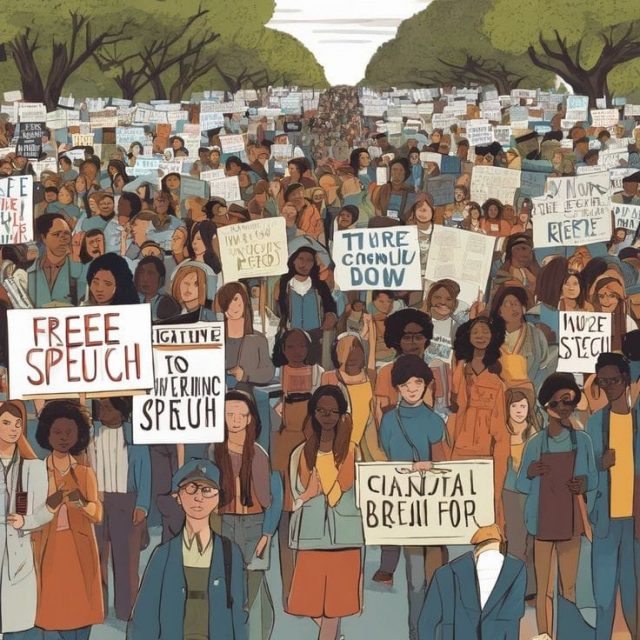Universities are meant to be grounds and platforms for informed and engaged citizens. However, a disturbing trend has always existed – the depoliticization of campuses. This isn’t just about silencing political discourse; it’s about creating a generation of ignorant or easily manipulated individuals.
The slogan “I hate politics” is very famous among the students and youths of our nation. It is often used to discourage students from engaging with socio-political issues. This apathy is often amplified by corporate cultures prioritizing producing “well-equipped corporate peasants” who don’t challenge the status quo.
The recent incident at Galgotias University is just the tip of the iceberg. Many private and public universities foster similar environments. Students are subtly discouraged from participating in extracurricular activities, discussing social issues, and engaging with the outside world, leaving them vulnerable to propaganda and manipulation.
While technical skills are important, without social awareness and critical thinking, they become meaningless. An ignorant but highly skilled individual is easily manipulated. The question then arises: who benefits from this ignorance?
The answer is evident: those in power, the politicians. An uninformed public is easier to control. This depoliticization creates a dangerous cycle. By discouraging students from engaging with social issues, we breed a generation of citizens who are blind to injustice and easily manipulated.
The discouragement of student union elections and political activism isn’t solely about keeping students away from societal issues. It reflects a broader societal pressure that pushes students to prioritize studies over civic engagement. This pressure isn’t just from powerful institutions but stems from a general consensus that student politics are “meaningless.”
This approach weakens society by denying students the opportunity to contribute their perspectives and hold institutions accountable.
There’s a misconception that politics is all about elections, campaigning, and power struggles. While those are elements, they paint a limited picture, politics, at its core, is about being aware of your surroundings. It’s about developing an intuition for the issues that impact your life and the lives of others. It’s about cultivating sensitivity to the problems facing your community.This awareness fuels action. When we become attuned to social issues, we’re more likely to become involved in finding solutions. This doesn’t necessarily mean running for office. It can be as simple as volunteering, advocating for a cause you care about, or even starting a conversation with someone who has a different perspective.
Engaging with political issues isn’t just about elections; it’s about becoming a well-informed and responsible citizen. Through discussions and debates, we gain fresh perspectives on justice, rights, duties, equality, and freedom. This knowledge equips us to challenge the status quo, question authority, and critically analyze society’s problems.
Most importantly, political awareness empowers us to fight for our rights. We learn to demand change, advocate for what’s right, and hold institutions accountable. This active participation in shaping our society is the true mark of being educated and knowledgeable.
Conversely, depoliticization fosters ignorance. It leaves us vulnerable to manipulation and unable to defend ourselves. Galgotias University is a stark example, yet it’s not an isolated case. Many institutions, with their glossy facades and PR driven management, might appear to offer education, but in reality, they shut our voices and turn us into passive bystanders and mute spectators.
In one of his famous couplets, Akbar Allahabadi expressed:
“Yun Qatl se bachchon ke wo badnam na hota, Afsos ki Firaun ko college ki na soojhi”
(He had not been disgraced by the killing of Children, It is a pity that Pharaoh did not think of college)
He implied that instead of committing heinous crimes of murdering children to prevent any possible threat to question his Power and politics, Pharaohs could have built colleges to keep people uninformed about their rights, duties, and life’s objectives. However, modern-day Pharaohs have indeed devised universities that foster ignorance and silence dissent.






